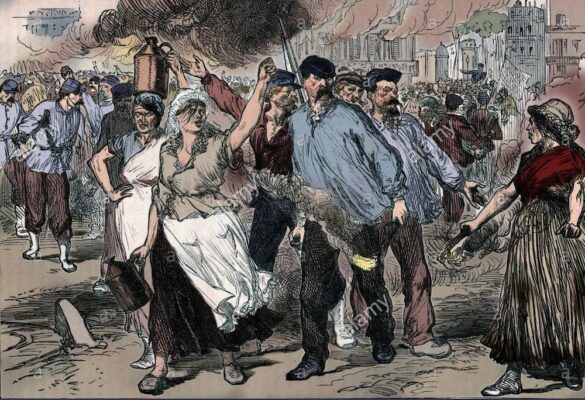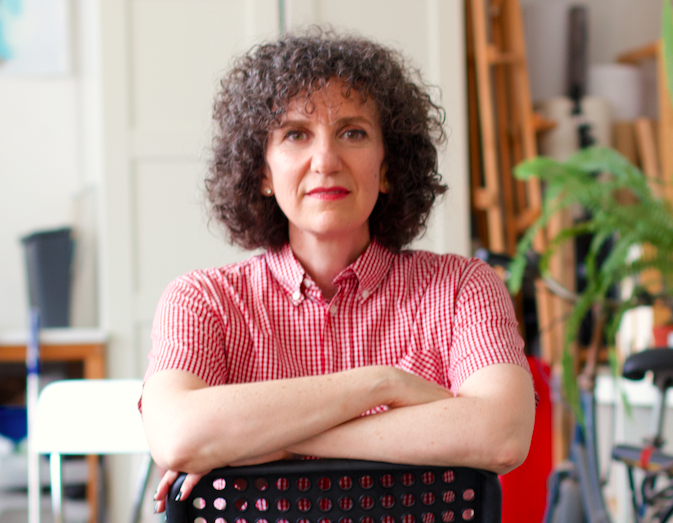Search
To search for an exact match, type the word or phrase you want in quotation marks.
A*DESK has been offering since 2002 contents about criticism and contemporary art. A*DESK has become consolidated thanks to all those who have believed in the project, all those who have followed us, debating, participating and collaborating. Many people have collaborated with A*DESK, and continue to do so. Their efforts, knowledge and belief in the project are what make it grow internationally. At A*DESK we have also generated work for over one hundred professionals in culture, from small collaborations with reviews and classes, to more prolonged and intense collaborations.
At A*DESK we believe in the need for free and universal access to culture and knowledge. We want to carry on being independent, remaining open to more ideas and opinions. If you believe in A*DESK, we need your backing to be able to continue. You can now participate in the project by supporting it. You can choose how much you want to contribute to the project.
You can decide how much you want to bring to the project.

Like many of you, I was stunned this summer by the heat wave and by the wave of neo-fascism and the extreme right that is sweeping the world, once again at home within the idea of what is tolerable in the social imagination. I refuse the inertia of surrendering to pessimism and I resist feeling powerless in the face of its return. The question is, can we do anything meaningful as individuals?
Apart from an individual conscience and the exercising our rights, when it comes to the forces of History the focus must be broadened. With our land and our communities, we have the capacity to stop this shift by considering collectivity and community as a space of political possibilities, and by analyzing the way in which it has carried out different forms of struggle and resistance.
Understanding the dissident power of communities and their subcultural organization (in its dialectical relation to hegemonic culture) allows us to understand ways to fight against those who seek to weaken human rights and maintain segregationist privileges.
To make sense of this indignant ire, and in order to delve deeper into these conflicts, I asked four authors who have made some very successful contributions to help. Oriol Rosell gives us several keys from subcultural studies, analyzing the traces left by the “performativity of a certain disengagement” after a subcultural subversion of communities. As its dark reflection, this disengagement with the dominant culture, in its current configuration, also produces monsters, such as misogynistic subcultures. YESSi PERSE, in a video, a playlist and a set of links, talks about SiegedSec, a group of Queer Furry Hackers associated with the LGTBIQ+ left and the Otherkin subculture. SiegedSec generates direct political action through a massive filtering of data from intolerant governments that legislate against abortion and LGTBIQ+ rights.
Vista Oral uses the Museum del Remember to take a ride on the Ruta del Bakalao. In case anyone wonders what the Ruta is doing in a text about dissident communities, Julia Ramírez Blanco reminds us that, since the 1990s, protest took on a celebratory dimension, and the experience of life inside parties differs from the rules that govern outside of them, and favors dissent. Not in vain, the government reaction that occurs later (in England) criminalizes rave culture and subversive leisure.[1]Ramírez Blanco, Julia, Utopías artísticas de revuelta, Claremont Road, Reclaim the Streets, la Ciudad de Sol. Ediciones Cátedra, Madrid, 2014. In this sense, Vista Oral talks about how the bakalaosubculture responds to its historical moment and to an exceptional state of anomie (a lack of laws). This allowed discotheques to become Temporary Autonomous Zones, and the dance floor (sometimes in the parking lot) a space of resistance to the established system. Dancing till you, and then more.
Diana Padrón points out how culture, and especially the cultural industry, has been depoliticized and turned into a territory of consensus. Diana proposes the re-politicization of the creative class to generate more inclusive communities, but no longer with politics as the art of the possible but, following Chantal Mouffe, by believing in the political as the art of the impossible.
Reading these texts provides us with clues that can allow us to deactivate the horrible world that is being formed. In order to dissolve the growing dystopia, dissident communities provide us with tools which, to be effective, must act together as allies operating at various levels: from cyberspace to human bodies and the streets, and also (of course!) within the spaces of decision making and representation. We must not forget to act within the symbolic realm and in social and personal organizations, in our small spheres of influence and in all dimensions of existence.
(Cover image: The rioters and petroleuses firing on public buildings in Paris during the Paris Commune of 1871 (1906). Unknown artist).
| ↑1 | Ramírez Blanco, Julia, Utopías artísticas de revuelta, Claremont Road, Reclaim the Streets, la Ciudad de Sol. Ediciones Cátedra, Madrid, 2014. |
|---|

Pilar Cruz is a curator, cultural worker, ye-ye girl.
She has a Bachelor degree in Art History and an official master’s degree in Advanced Studies in Art History from the UB, with a final project on subcultures in Spain in the 1960s.
She has developed her work in various institutions such as Fundació Miró, Macba, Serralves Museum, Caixafórum, Sala d’Art Jove, Arts Santa Mònica, Can Felipa, Sant Andreu Contemporani, Festival Periferias, Art Barcelona… Selected in the first edition of Komisario Berriak, her interest in hybrid formats of work has led her to co-direct projects such as Liminal GR or Degénero editions together with Fito Conesa.
She has been part of the curatorial team of La Capella, and currently develops several projects as an independent curator, is an advisor to the Temporals program of ICUB and takes part of Club9.
Portrait: Sylvia Yruela Studio
"A desk is a dangerous place from which to watch the world" (John Le Carré)